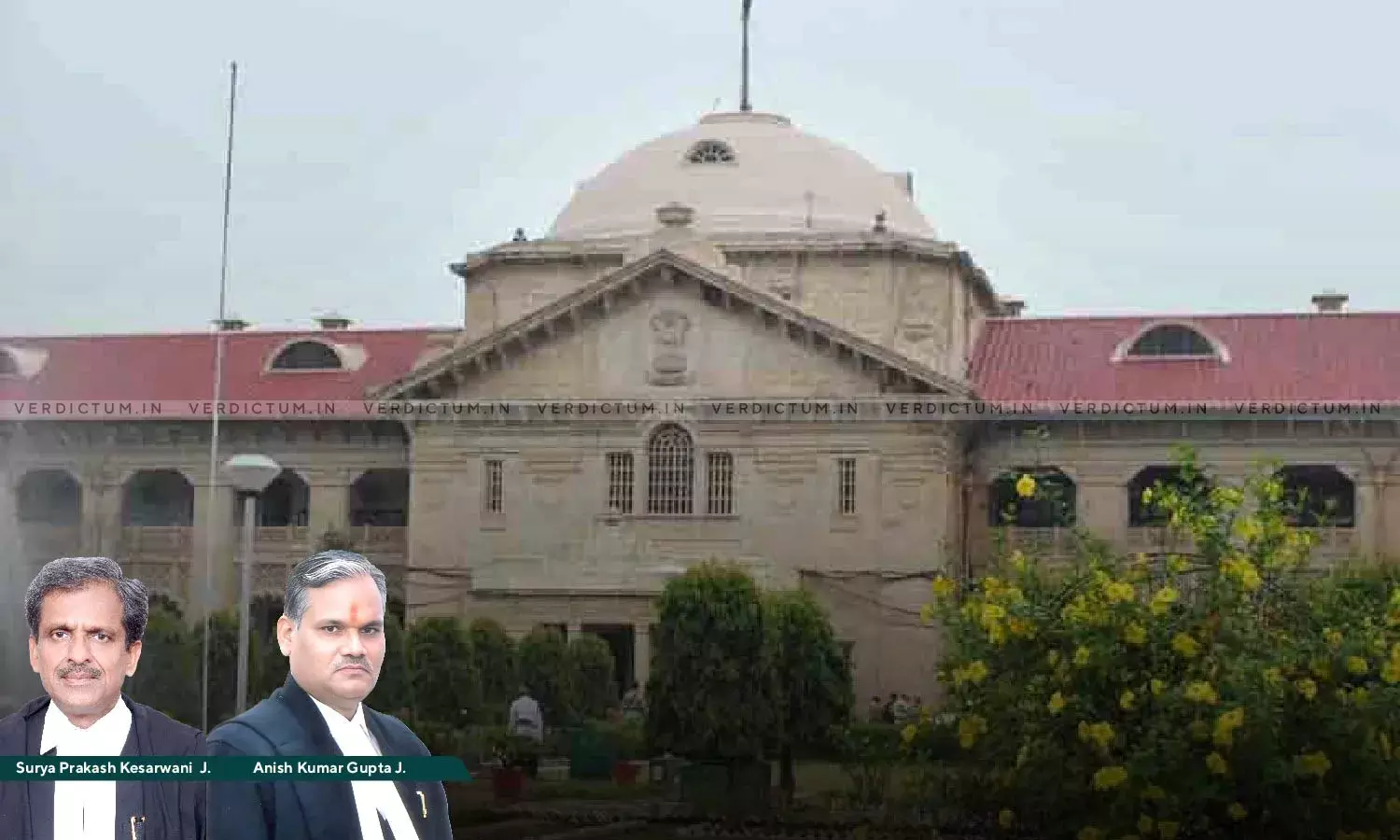Profession Of Advocate Is Not A Commercial Activity, Commercial Rate Of Electricity Consumption Not Applicable: Allahabad HC

The Allahabad High Court has held that the activities or profession of an advocate is a not a commercial activity and hence the commercial rate of electricity consumption as prescribed in Rate Schedule LMV-2, as applicable in the State of U.P. approved by the U.P. Electricity Regulatory Commission is not applicable in such a case.
A Division Bench of Justice Surya Prakash Kesarwani and Justice Anish Kumar Gupta observed, “The activities/profession of an advocate is a not a commercial activity, attracting the commercial rate of electricity consumption as prescribed in Rate Schedule LMV-2, as applicable in the State of U.P. approved by the U.P. Electricity Regulatory Commission. … The Rate Schedule LMV-2, which is applicable for the commercial activities, cannot be applied for the electricity supplied to the Lawyers Chambers. The Lawyers chambers / offices shall be charged only under LMV-1 Domestic category as the lawyers neither do any trade or business nor are involved in any commercial activity.”
The Bench further held that the respondents cannot discriminate between the electricity supply to the advocates' chambers in different court compounds, in the same State, where the rate schedules are approved by the same authority.
Advocate Vivek Prakash Mishra represented the petitioner while Advocates Pranjal Mehrotra and Krishna Agarawal represented the respondents.
Facts of the Case -
The petitioner, Tehsil Bar Association was an association of advocates registered under Societies Registration Act, 1860 and the members of the petitioner association were the advocates engaged in legal practice and all of them got their chambers at the Tehsil Sadar campus with valid electricity connection installed by the respondent Power Corporation. As per the tariff schedule for Financial Year 2016-17 available on the website of the respondent, the residential premises of professionals such as advocates including their chambers were treated as domestic and well covered under schedule LMV-1.
After the grant of electricity connection in the chambers of such advocates, the respondent started charging the electricity charges at commercial rates which were objected by the petitioner association and since their grievances were not redressed, they approached the High Court whereby it categorically observed that domestic rates would be applicable to the chambers of professionals such as advocates, doctors, artists, consultants etc. In terms of such an order, the petitioner made a representation before the respondent which rejected its contention. Aggrieved by this, the petitioner filed a writ petition before the High Court.
The High Court in the above regard noted, “From the careful perusal of the rate schedules, as approved for the Financial Year 2022-23 by the U.P. State Regulatory Commission it is apparent that the activities of advocates and professionals or the public institutions like Judiciary do not find place in any of the rate schedule. … Thus from the plain reading of the illustrative definition of the non domestic purpose as indicated in the rate schedule under LMV-2, we are of the firm view that the lawyers' chambers would not come within the definition of non-domestic purpose as illustrated in rate schedule LMV-2 as the illustrative activities indicate the activities of commercial nature.”
The Court further observed that the legal profession in catena of cases has been held to be non-commercial activity and it is not a trade or business. It said that by the Rules framed by the Bar Council of India, the Lawyers are also prohibited from actively participating in any trade or profession.
“An advocate is prohibited from creating any self interest in the subject matter of the case, for he is engaged. He cannot stipulate a fee contingent on the result of the case nor he can agree to share the proceeds of the case. All these are the features, which categorically distinguish, the legal profession from the trade or business. Therefore, the legal profession by no stretch of imagination can be called as the commercial activity, trade or business”, added the Court.
The Court also said that the rates schedule cannot be applied to the offices of the legal professionals, whether such offices are in the residential buildings or are situate in the court premises and that the lawyers' chambers, which are within the court compounds are part of the judicial premises, where LMV-1 is applicable.
“Merely because of Clause - 13 of the rate schedule, which is a residuary clause, the rate Schedule LMV-2, which is applicable to commercial activities, cannot be applied in case of the lawyer’s chambers in Court premises. … Hence, the petitioner also being similarly situated cannot be treated differently and the same rate schedule ought to have been applied to their chambers as well”, held the Court.
The Court concluded that the different power corporation and companies cannot treat the consumers of electricity in different manner in the same State and hence, the advocate's profession cannot be categorised to be charged under LMV-2, which is applicable to the commercial activities.
Accordingly, the High Court allowed the writ petition and directed the respondents to charge for the consumption of electricity by the lawyers in their chambers in the court premises as per the rate schedule LMV-I.
Cause Title- Tehsil Bar Association, Sadar Tehsil Parisar, Gandhi Nagar, Ghaziabad v. U.P. Power Corporation Limited And 3 Others (Neutral Citation: 2023:AHC:155009-DB)


